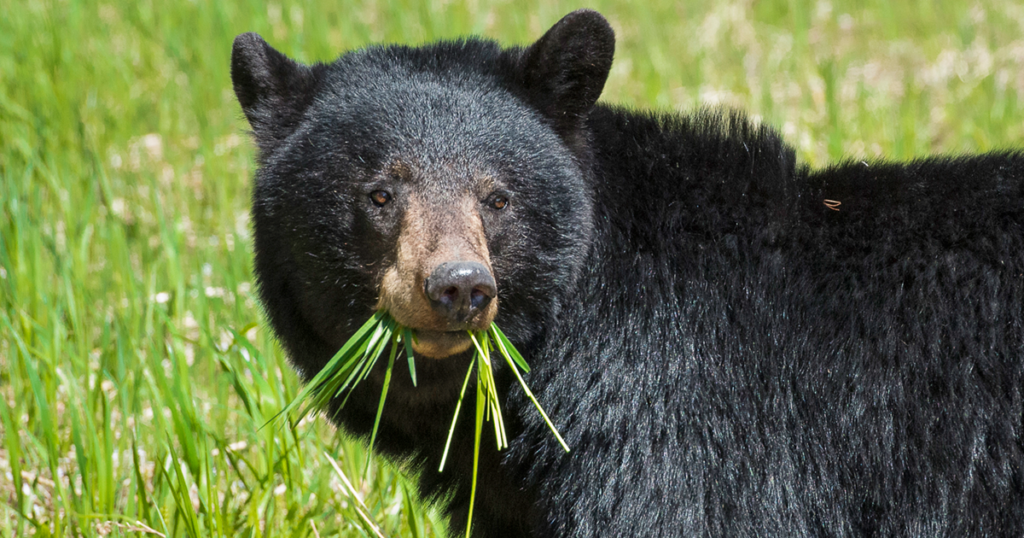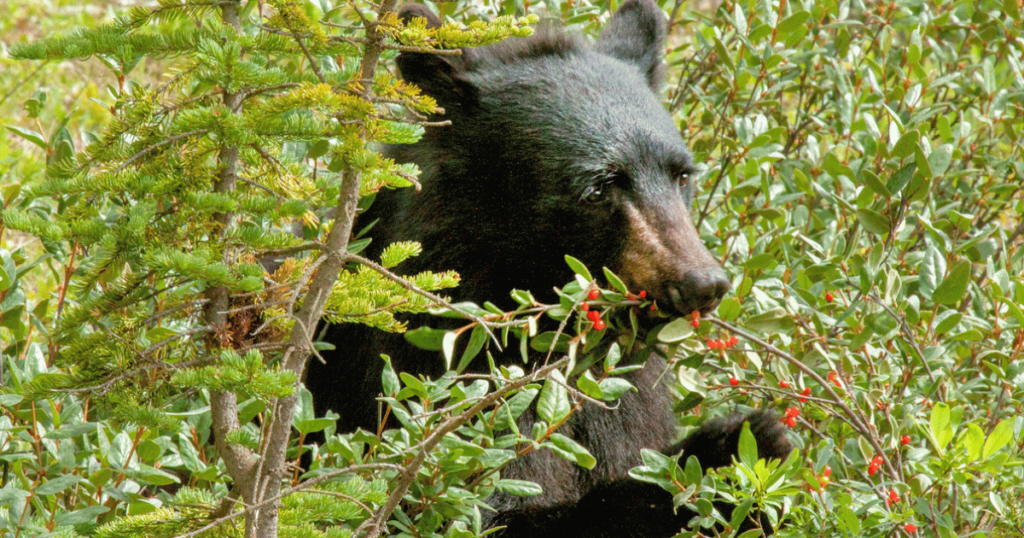
Hyperphagia refers to a natural behavior observed in many bear species, especially in the months leading up to hibernation (late summer and fall). During hyperphagia, bears consume large amounts of food to build up fat reserves that will sustain them throughout their period of dormancy.
Bears engage in hyperphagia to prepare for hibernation (or more accurately torpor, which is decreased physiological activity) because their metabolic rate drops significantly during this time, and they rely on stored body fat for energy. By consuming a substantial amount of food before hibernation (up to 20K calories a day!), bears are better equipped to survive without eating for an extended period. It’s particularly important for bears in temperate and cold regions where food availability decreases during the winter months.
Critical time for moms-to-be
Breeding season for bears happens in May and lasts until early July. However, the implantation of the fertilized eggs – called blastocysts – is delayed until the start of denning season. If the mother does not gain enough weight during the late summer and fall, the embryos will not attach to her uterine wall. If there is enough food, then baby bears will be born. It’s nature’s way of how bears regulate their populations. It also means new moms are on the move in need of extra calories to support the growth and birth of her cubs (usually in January).
What do bears eat?
Bears are omnivorous animals, which means they eat both plants and animals. Their diet includes grasses, nuts (acorns, walnuts, pine nuts), roots, berries, insects (bees, ants), small mammals (such as rodents), fish (especially during salmon spawning runs), and carrion (dead animals/carcasses). Bears also have a keen sense of smell and are opportunistic feeders – they will eat whatever is available in their habitat including garbage, pet food, plastics and even dirty diapers. Gross!

Photo by millermountainman / Getty Images
Act now to help protect bears!
During the hyperphagia stage of their seasonal cycle, bears can come into contact with humans in their frenzied search for food. If humans aren’t mindful, we can create safety issues for both us and the bears. Now is the time to show you care!
Securing attractants is the best way to keep people safe, prevent property damage, and to protect bears. Here are some tips to help manage attractants around your home:
- Never feed bears or other wildlife.
- Remove ripened fruit and vegetables.
- Consider a permanent electric fence for your garden.
- Ensure your garbage is locked, recycling should be washed/clean/secured.
- Never leave pet food outside.
- Remove bird feeders.
- Clean your BBQ grill, remove any grease traps.
- Secure backyard chickens in a predator-proof enclosure and do not leave animal feed or grain outside.
- Use a bear-proof composter, avoid composting meat, fish, eggs and dairy.
- As much as possible, keep doors and windows closed and locked. Food smells can lure hungry bears inside your home.
- Block potential denning sites like crawl spaces under decks and buildings.
As it is humans who cause most of the issues that lead to negative encounters with bears, it is our responsibility to take control of attractants to ensure our community is a safe place for everyone, including the animals.
